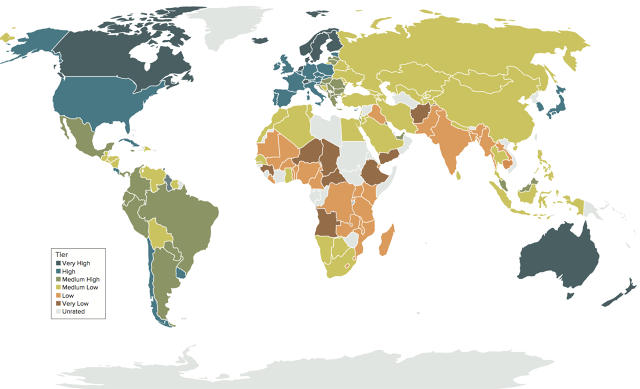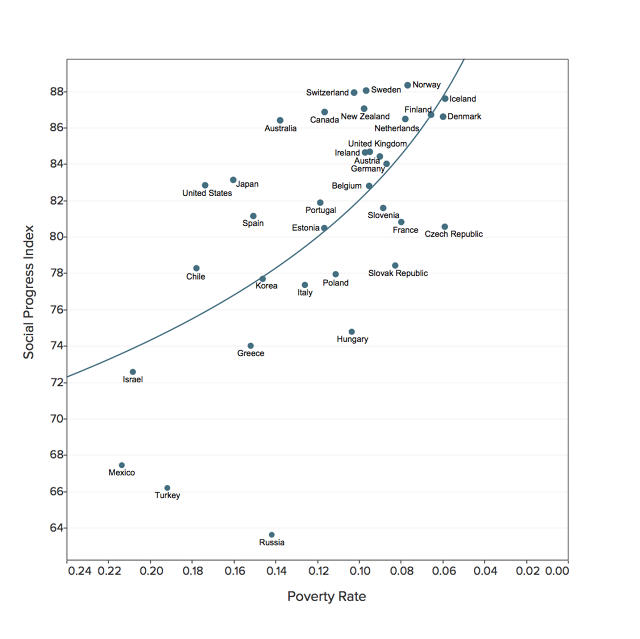This year, Chinese New Year - The Year of the Monkey - begins on February 8th and lasts until Jan 27th, 2017.
Happy Chinese New Year!

A man in a monkey costume climbs one of the lion statues in Trafalgar Square in London Photo: AP Photo/Frank Augstein
People gathered at one of Hong Kong's best known temples - the Wong Tai Sin - to make their new year wishes, while dancers dressed in traditional costumes performed at Ditan Park in Beijing.
The Sydney Opera House in Australia was bathed in red light as part of city wide lumiere and lantern display to welcome in Chinese New Year
While preliminary events have been kicking off across the UK, the big celebrations in the capital won't take place until Sunday 14th February.
On Saturday, the National Gallery in Trafalgar Square hosted a free Chinese New Year-themed family day, while Chiswick House Gardens launched the UK debut of the Magical Lantern Festival on Wednesday February 3rd.
The display, which included a 66-metre long dragon, runs until March 6th.

The Terracotta Army Photo: Anthony Upton/The Telegraph
The new year, also known as the Spring Festival, is marked by the lunisolar Chinese calendar, so the date changes from year to year.
The festivities usually start the day before the New Year and continue until the Lantern Festival, the 15th day of the new year.
 The Chinese symbol for monkey
The Chinese symbol for monkey
Each Chinese New Year is characterised by one of 12 animals which appear in the Chinese zodiac. The Chinese zodiac is divided into 12 blocks (or houses) just like its western counterpart, but with the major difference being that each house has a time-length of one year instead of one month.
This year it's the Year of the Monkey, the ninth animal in the cycle. The next Year of the Monkey will be in 2028.
Popular Chinese New Year Greetings
1. 新年好 / 新年好 (Xīnnián hǎo)
'New Year goodness!'
In Mandarin: /sshin-nyen haoww/
In Cantonese: /sen-nin haow/
2. 恭喜发财 / 恭喜發財 (Gōngxǐ fācái)
'Happiness and prosperity!'
In Mandarin: /gong-sshee faa-tseye/
In Cantonese: Kunghei fatchoy /gong-hey faa-chwhy/
3. 步步高升 / 步步高陞 (Bùbù gāoshēng)
A steady rise to high places! — "on the up and up"
In Mandarin: /boo-boo gaoww-shnng /
In Cantonese: /boh-boh goh-sshin /
The personality of the Monkey
People born in the Year of the Monkey are characterised as lively, quick-witted, curious, innovative and mischievous, but it is also believed to be one of the most unlucky years in the Chinese calendar.
In addition, their gentleness and honesty bring them an everlasting love life. Although they were born with enviable skills, they still have several shortcomings, such as an impetuous temper and a tendency to look down upon others.
- Strengths: sociable, innovative, enthusiastic, self-assured
- Weaknesses: suspicious, cunning, selfish, arrogant, jealous

Performers play the dragon dance during the Chinese New Year parade Photo: KeystoneUSA-ZUMA/Rex Features
Lucky Signs for the Monkey
- Lucky numbers: 1, 7, 8
- Lucky colours: white, gold, blue
- Lucky flowers: chrysanthemum, alliums
- Lucky directions: north, northwest, west
Famous people born under the monkey sign
Julius Caesar, Leonardo da Vinci, Charles Dickens, Lord Byron, Elizabeth Taylor, Diana Ross, Michael Douglas, Alice Walker, Celine Dion, Tom Hanks, Will Smith, Halle Berry, Christina Aguilera, Owen Wilson, Daniel Craig, Mick Jagger, Bette Davis, Annie Oakley, Eleanor Roosevelt, Cuba Gooding Jr., Gisele Bundchen, Kim Cattrall, Nick Carter, Patricia Arquette, Alyson Stoner, Christina Ricci, Demi Lovato, Miley Cyrus, Nick Jonas, Selena Gomez.
Your sign is derived from the year you were born in the Chinese lunar calendar.
The years below are a rough guide, but if you were born in January or February it may be slightly different as the new year moves between 21 January and February 20.
- Rat: 2008, 1996, 1984, 1972, 1960
- Ox: 2009, 1997, 1985, 1973, 1961
- Tiger: 2010, 1998, 1986, 1974, 1962
- Rabbit: 2011, 1999, 1987, 1975, 1963
- Dragon: 2012, 2000, 1988, 1976, 1964
- Snake: 2013, 2001, 1989, 1977, 1965
- Horse: 2014, 2002, 1990, 1978, 1966
- Sheep: 2015, 2003, 1991, 1979, 1967
- Monkey: 2016, 2004, 1992, 1980, 1968
- Rooster: 2017, 2005, 1993, 1981, 1969
- Dog: 2018, 2006, 1994, 1982, 1970
- Pig: 2019, 2007, 1995, 1983, 1971
What does your Chinese zodiac sign mean?
In Chinese astrology, the 12 animal zodiac signs each have unique characteristics.
- Rat: Intelligent, adaptable, quick-witted, charming, artistic, sociable.
- Ox: Loyal, reliable, thorough, strong, reasonable, steady, determined.
- Tiger: Enthusiastic, courageous, ambitious, leadership, confidence, charismatic.
- Rabbit: Trustworthy, empathic, modest, diplomatic, sincere, sociable, caretakers.
- Dragon: Lucky, flexible, eccentric, imaginative, artistic, spiritual, charismatic.
- Snake: Philosophical, organized, intelligent, intuitive, elegant, attentive, decisive.
- Horse: Adaptable, loyal, courageous, ambitious, intelligent, adventurous, strong.
- Sheep: Tasteful, crafty, warm, elegant, charming, intuitive, sensitive, calm.
- Monkey: Quick-witted, charming, lucky, adaptable, bright, versatile, lively, smart.
- Rooster: Honest, energetic, intelligent, flamboyant, flexible, diverse, confident.
- Dog: Loyal, sociable, courageous, diligent, steady, lively, adaptable, smart.
- Pig: Honorable, philanthropic, determined, optimistic, sincere, sociable.
Chinese New Year's Day Taboos
To be avoided on the first day of the Chinese New Year:
- Medicine: Taking medicine on the first day of the lunar year means one will get ill for a whole year.
- New Year's breakfast: Porridge should not be eaten, because it is considered that only poor people have porridge for breakfast, and people don't want to start the year “poor” as this is a bad omen.
- Laundry: People do not wash clothes on the first and second day, because these two days are celebrated as the birthday of Shuishen (水神, the Water God).
- Washing hair: Hair must not be washed on the first day of the lunar year. In the Chinese language, hair (发) has the same pronunciation and character as 'fa' in facai (发财), which means ’to become wealthy’. Therefore, it is seen as not a good thing to “wash one’s fortune away” at the beginning of the New Year.
- Sharp objects: The use of knives and scissors is to be avoided as any accident is thought to lead to inauspicious things and the depletion of wealth.
- Going out: A woman may not leave her house; otherwise she will be plagued with bad luck for the entire coming year. A married daughter is not allowed to visit the house of her parents, as this is believed to bring bad luck to the parents, causing economic hardship for the family.
- The broom: If you sweep on this day then your wealth will be swept away too.
- Crying children: The cry of a child is believed to bring bad luck to the family, so parents do their best to keep children as happy as possible.
- Theft: Having your pocket picked is believed to portend your whole wealth in the coming year being stolen.
- Debt: Money should not be lent on New Year’s Day, and all debts have to be paid by New Year’s Eve. If someone who owes you money, do not go to his or her home to demand it. Anyone who does so it is said will be unlucky all the year.
- An empty rice jar: An depleted receptacle may cause grave anxiety, as the cessation of cooking during the New Year period is considered to be an ill omen.
- Damaged clothes: Wearing threadbare duds can cause more bad luck for the year.
- Killing things: Blood is considered an ill omen, which will cause misfortunes such as a knife wound, or a bloody disaster.
- Monochrome fashion: White or black clothes are barred as these two colours are traditionally associated with mourning.
- Welcoming the New Year: According to tradition, people must stay up late on New Year’s Eve to welcome the New Year, and then to let off firecrackers and fireworks to scare off inauspicious spirits and Nian, the New Year monster.
- Giving of certain gifts: Clocks, scissors, and pears all have a bad meaning in Chinese culture.

Chinese lanterns are strung across a street in Chinatown Photo: Oli Scarff/Getty Images

A traditional Chinese Wishing tree
The ancient tradition of the Wishing Tree is synonymous with good luck and fortune, and the legend goes that hanging your hopes for the coming year on a Wishing Tree will encourage your dreams to come true.
Members of the public are invited to visit the tree and receive a bespoke wish written by an authentic Chinese calligrapher to take home along with a golden chocolate coin, for added good fortune.

 Social Progress Index Scores plotted against GDP to show where it does and doesn't correlate.
Social Progress Index Scores plotted against GDP to show where it does and doesn't correlate. Social Progress Index scores versus poverty rate.
Social Progress Index scores versus poverty rate.












